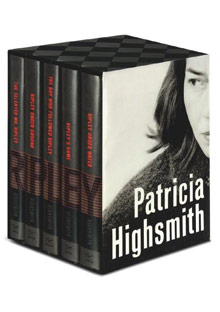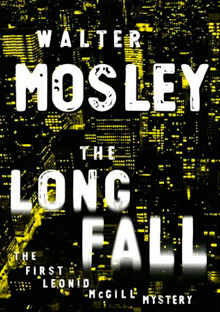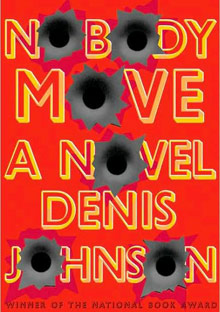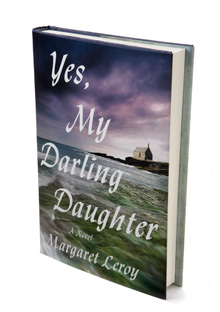 The Complete Ripley Novels
The Complete Ripley NovelsBy Patricia Highsmith
1520 pages; W.W. Norton
If you have only one summer vacation, spend it with Tom Ripley, that murderously insecure, identity-thieving culture vulture who made his dark debut in The Talented Mr. Ripley, the first of Patricia Highsmith's five Ripley novels, now available in a boxed set. The delicate tissue of lies fashioned by her volatile antihero is set off by the descriptions of the cosmopolitan watering holes where he plies his deadly trade. — Cathleen Medwick

By Walter Mosley
320 pages; Riverhead
The new man in your life: Leonid McGill, a private investigator and former boxer graced with the rueful wisdom that can come from relentless pummeling—inside a ring and out. In The Long Fall, Walter Mosley introduces this sometime sinner beset by midlife regrets and terrors who, in going "from crooked to only slightly bent," still has to deal with punks and predators. The novel's deepest mystery, embodied by McGill's unfaithful wife and sweetly criminal stepson: how to keep faith with others and yourself. — Cathleen Medwick
320 pages; Riverhead
The new man in your life: Leonid McGill, a private investigator and former boxer graced with the rueful wisdom that can come from relentless pummeling—inside a ring and out. In The Long Fall, Walter Mosley introduces this sometime sinner beset by midlife regrets and terrors who, in going "from crooked to only slightly bent," still has to deal with punks and predators. The novel's deepest mystery, embodied by McGill's unfaithful wife and sweetly criminal stepson: how to keep faith with others and yourself. — Cathleen Medwick

By Denis Johnson
208 pages; Farrar, Straus and Giroux
In 2007 Denis Johnson won the National Book Award for his sweeping novel of Vietnam, Tree of Smoke. Then, in a brilliant strategy for literary recharging, he signed up with Playboy magazine to publish a short novel in serial form with a monthly deadline. Nobody Move is the book that resulted: pure American crime story, with a grain running through it of Johnson's unmistakable Western lyricism and wit. The story centers on Jimmy Luntz, a thin and unimpressive fellow with the unfortunate twin habits of gambling and losing. He's about to get badly injured by the people he owes money to when he uncharacteristically manages to shoot his enforcer in the leg and run off with his car. Jimmy is lovably incapable of looking out for himself—he really should have finished the guy off. Soon enough he is chased down (the people after him are as inevitable as sunrise), but the journey along the way is where we have all the fun. Johnson has a particularly broad and surreal sense of humor—in the film of his book Jesus' Son, he makes a cameo appearance as the guy in the emergency room with the knife buried in his eye. The predictable comparisons between Nobody Move and the work of Raymond Chandler and Dashiell Hammett aren't quite accurate: Chandler's sense of humor was thin and dry as a blade, and Hammett had no sense of humor at all. The writer one repeatedly thinks of throughout this swift and entertaining story is Elmore Leonard, who, like Johnson, populates his work with likable losers capable of the most incredibly extravagant misjudgments. Finally, though, nobody has Johnson's poetry. His stark, funny, haunting images of violence and possible salvation stay with you, and they mark him as one of the great writers of our day. — Vince Passaro
208 pages; Farrar, Straus and Giroux
In 2007 Denis Johnson won the National Book Award for his sweeping novel of Vietnam, Tree of Smoke. Then, in a brilliant strategy for literary recharging, he signed up with Playboy magazine to publish a short novel in serial form with a monthly deadline. Nobody Move is the book that resulted: pure American crime story, with a grain running through it of Johnson's unmistakable Western lyricism and wit. The story centers on Jimmy Luntz, a thin and unimpressive fellow with the unfortunate twin habits of gambling and losing. He's about to get badly injured by the people he owes money to when he uncharacteristically manages to shoot his enforcer in the leg and run off with his car. Jimmy is lovably incapable of looking out for himself—he really should have finished the guy off. Soon enough he is chased down (the people after him are as inevitable as sunrise), but the journey along the way is where we have all the fun. Johnson has a particularly broad and surreal sense of humor—in the film of his book Jesus' Son, he makes a cameo appearance as the guy in the emergency room with the knife buried in his eye. The predictable comparisons between Nobody Move and the work of Raymond Chandler and Dashiell Hammett aren't quite accurate: Chandler's sense of humor was thin and dry as a blade, and Hammett had no sense of humor at all. The writer one repeatedly thinks of throughout this swift and entertaining story is Elmore Leonard, who, like Johnson, populates his work with likable losers capable of the most incredibly extravagant misjudgments. Finally, though, nobody has Johnson's poetry. His stark, funny, haunting images of violence and possible salvation stay with you, and they mark him as one of the great writers of our day. — Vince Passaro

By Debra Ginsberg
352 pages, Shaye Areheart
I'm not psychic. There's no such thing; only luck, timing, and observation," Marina Marks, an attractive and highly intuitive "counselor" to the wealthy and influential tells herself. Um, wrong. Marina's second sight—and haunted loneliness—makes Debra Ginsberg's The Grift (Shaye Areheart) an unusually seductive thriller. Read it for the not-so-predictable deceptions and the ghostly elusiveness of love. — Cathleen Medwick
352 pages, Shaye Areheart
I'm not psychic. There's no such thing; only luck, timing, and observation," Marina Marks, an attractive and highly intuitive "counselor" to the wealthy and influential tells herself. Um, wrong. Marina's second sight—and haunted loneliness—makes Debra Ginsberg's The Grift (Shaye Areheart) an unusually seductive thriller. Read it for the not-so-predictable deceptions and the ghostly elusiveness of love. — Cathleen Medwick

By Ruth Rendell
320 pages. Crown.
Further proof of Ruth Rendell's mastery, Not in the Flesh (Crown) digs up long-buried secrets—along with corpses, truffles, and piquant deceptions, some of them literary.... — Cathleen Medwick
320 pages. Crown.
Further proof of Ruth Rendell's mastery, Not in the Flesh (Crown) digs up long-buried secrets—along with corpses, truffles, and piquant deceptions, some of them literary.... — Cathleen Medwick

By Catherine O'Flynn
256 pages. Holt.
The bravest and most appealing adolescent this side of The Lovely Bones, aspiring detective Kate Meaney vanishes partway through Catherine O'Flynn's mesmerizing debut novel, What Was Lost (Holt). Yet Kate's spirit remains, years after her disappearance, at the mall where she once tracked suspicious characters. Like Lisa and Kurt, two disaffected workers who can't get Kate out of their minds, you can't help looking for her in every lonely corridor. There are many ways to feel invisible, we learn from this gentle, sharp-sighted tale of love and loneliness. And there are many ways to be found. — Cathleen Medwick
256 pages. Holt.
The bravest and most appealing adolescent this side of The Lovely Bones, aspiring detective Kate Meaney vanishes partway through Catherine O'Flynn's mesmerizing debut novel, What Was Lost (Holt). Yet Kate's spirit remains, years after her disappearance, at the mall where she once tracked suspicious characters. Like Lisa and Kurt, two disaffected workers who can't get Kate out of their minds, you can't help looking for her in every lonely corridor. There are many ways to feel invisible, we learn from this gentle, sharp-sighted tale of love and loneliness. And there are many ways to be found. — Cathleen Medwick

By Patrick McGrath
224 pages. Knopf.
Read one page—one sentence—of Trauma (Knopf), Patrick McGrath's new novel, and you'll be hooked by this elegant psychological thriller set in the gritty, pre-gentrification Manhattan of the 1970s. McGrath's hero, Charlie Weir, is a psychiatrist specializing in trauma victims. His fatal misjudgment in the treatment of one of his patients, a damaged Vietnam War veteran, has had disastrous consequences for his family and his marriage. Divorced, desperately lonely, haunted by the ghosts of his own deeply troubled upbringing, Charlie becomes romantically involved with his ex-wife and with an attractive and dangerously unstable woman whom he meets through his brother. Nothing is quite what it seems, and no one (or almost no one) proves to be completely trustworthy as events rapidly spiral out of Charlie's control, and as his attempt to escape the chaos around him leads him to uncover a series of dark and terrifying secrets about his own past. At once a gripping mystery and a meditation on how little it takes to reopen the scars inflicted in childhood, Trauma reminds you of how satisfying it is to be unable to put a book down—and then, when it's over, to be sorry and relieved to reenter your own comparatively unhaunted life. — Francine Prose
224 pages. Knopf.
Read one page—one sentence—of Trauma (Knopf), Patrick McGrath's new novel, and you'll be hooked by this elegant psychological thriller set in the gritty, pre-gentrification Manhattan of the 1970s. McGrath's hero, Charlie Weir, is a psychiatrist specializing in trauma victims. His fatal misjudgment in the treatment of one of his patients, a damaged Vietnam War veteran, has had disastrous consequences for his family and his marriage. Divorced, desperately lonely, haunted by the ghosts of his own deeply troubled upbringing, Charlie becomes romantically involved with his ex-wife and with an attractive and dangerously unstable woman whom he meets through his brother. Nothing is quite what it seems, and no one (or almost no one) proves to be completely trustworthy as events rapidly spiral out of Charlie's control, and as his attempt to escape the chaos around him leads him to uncover a series of dark and terrifying secrets about his own past. At once a gripping mystery and a meditation on how little it takes to reopen the scars inflicted in childhood, Trauma reminds you of how satisfying it is to be unable to put a book down—and then, when it's over, to be sorry and relieved to reenter your own comparatively unhaunted life. — Francine Prose

By Castle Freeman Jr.
176 pages. Steerforth.
Alonzo Boot, a.k.a. Whizzer, proprietor of the defunct Dead River Chair Company—these days a dilapidated sawmill—is the point man for problems the law can't solve. He is also the sly, gallant heart at the center of Go with Me (Steerforth), Castle Freeman Jr.'s elegant little thriller about cunning versus cruelty, set in a rural Vermont town that time forgot. When Lillian, a testy, attractive young woman stalked by Blackway, a homegrown bad guy, finds her way to the mill, Whizzer and his slovenly Greek chorus of boozy locals hunker down to some serious (and extremely funny) jawboning. Get out of town, they tell her, but Lillian's a pistol; she insists on confronting the murderous Blackway whatever the cost. Whizzer offers her two unlikely champions, a laconic geezer called Lester and a muscle-bound mill hand called Nate (“Smarter than a horse, not smarter than a tractor”). To watch Lester's strategy unfold as the trio stumbles toward Blackway's hideaway is pure delight, thanks to Freeman's streamlined storytelling, dead-on dialogue, and lyrical descriptions of the bleak, woodsy landscape. This is a meticulous New England miniature, with not a wasted word. — Cathleen Medwick
176 pages. Steerforth.
Alonzo Boot, a.k.a. Whizzer, proprietor of the defunct Dead River Chair Company—these days a dilapidated sawmill—is the point man for problems the law can't solve. He is also the sly, gallant heart at the center of Go with Me (Steerforth), Castle Freeman Jr.'s elegant little thriller about cunning versus cruelty, set in a rural Vermont town that time forgot. When Lillian, a testy, attractive young woman stalked by Blackway, a homegrown bad guy, finds her way to the mill, Whizzer and his slovenly Greek chorus of boozy locals hunker down to some serious (and extremely funny) jawboning. Get out of town, they tell her, but Lillian's a pistol; she insists on confronting the murderous Blackway whatever the cost. Whizzer offers her two unlikely champions, a laconic geezer called Lester and a muscle-bound mill hand called Nate (“Smarter than a horse, not smarter than a tractor”). To watch Lester's strategy unfold as the trio stumbles toward Blackway's hideaway is pure delight, thanks to Freeman's streamlined storytelling, dead-on dialogue, and lyrical descriptions of the bleak, woodsy landscape. This is a meticulous New England miniature, with not a wasted word. — Cathleen Medwick

By T.C. Boyle
T.C. Boyle's Talk Talk makes the lurking danger of identity theft a dizzying reality as Dana, a beautiful deaf woman with a nose for deception, and her fiancé, Bridger Martin, careen cross-country in pursuit of the man who has helped himself to their lives. A tricky novel of unlikely intimacies. — Cathleen Medwick
T.C. Boyle's Talk Talk makes the lurking danger of identity theft a dizzying reality as Dana, a beautiful deaf woman with a nose for deception, and her fiancé, Bridger Martin, careen cross-country in pursuit of the man who has helped himself to their lives. A tricky novel of unlikely intimacies. — Cathleen Medwick

By Diane Johnson
320 pages; Dutton
When the expatriated protagonist of Diane Johnson's novel Lulu in Marrakech (Dutton) was a girl in California, her aunt advised her to never tell anyone she could type. Good advice. Eluding the secretarial pool in Peoria, she landed in Marrakech, pursuing the love of English businessman Ian Drumm as cover for her CIA mission to trace the flow of money from wealthy donors to radical Islamic groups. Unsure of her potential as an infiltrator in a country where "knowledge is in someone's head, it's recorded in the knots of a camel's bridle, in certain passages of the Koran," Lulu wavers between her commitment to the agency, which insists she "behave and take orders" ("like Ingrid Bergman," she says), and her daydreams of being married ("like million of other women"). She is surrounded by other women, each oppressed according to their cultures, an Algerian named Suma, whose brother is intent on killing her if she cannot prove her virginity, a Saudi named Gazi who has also had an affair with Ian and therefore cannot return to her country, husband, or children. There is Posy, pregnant and stuck in a marriage to a blowhard aging English poet, and Desi, a 13-year-old Moroccan who gets pressed into everything from gynecological fraud to suicide bombing. Timely and provocatively incorrect, Lulu in Marrakech is part page-turning thriller, part in-depth examination of gender inequality and the "perennial eye infection of colonialism." — Pam Houston
320 pages; Dutton
When the expatriated protagonist of Diane Johnson's novel Lulu in Marrakech (Dutton) was a girl in California, her aunt advised her to never tell anyone she could type. Good advice. Eluding the secretarial pool in Peoria, she landed in Marrakech, pursuing the love of English businessman Ian Drumm as cover for her CIA mission to trace the flow of money from wealthy donors to radical Islamic groups. Unsure of her potential as an infiltrator in a country where "knowledge is in someone's head, it's recorded in the knots of a camel's bridle, in certain passages of the Koran," Lulu wavers between her commitment to the agency, which insists she "behave and take orders" ("like Ingrid Bergman," she says), and her daydreams of being married ("like million of other women"). She is surrounded by other women, each oppressed according to their cultures, an Algerian named Suma, whose brother is intent on killing her if she cannot prove her virginity, a Saudi named Gazi who has also had an affair with Ian and therefore cannot return to her country, husband, or children. There is Posy, pregnant and stuck in a marriage to a blowhard aging English poet, and Desi, a 13-year-old Moroccan who gets pressed into everything from gynecological fraud to suicide bombing. Timely and provocatively incorrect, Lulu in Marrakech is part page-turning thriller, part in-depth examination of gender inequality and the "perennial eye infection of colonialism." — Pam Houston

Photo: Charlotte Jenks Lewis/Studio D
By Margaret Leroy
352 pages; Sarah Crichton/Farrar, Straus and Giroux
Margaret Leroy's eerily lovely novel Yes, My Darling Daughter (Sarah Crichton/Farrar, Straus and Giroux) is one of those rare books you'll sit with till your bones ache. The mystery of why 4-year-old Sylvie longs to return to a house she has never seen, a family she cannot have known, takes this peculiar child, her anxious single mother, and a romantically scruffy psychologist onto the windswept beaches of a tiny coastal Irish village—a setting as enchantingly perilous as childhood itself. — Cathleen Medwick
 This book is one of the 25 Books of Summer
This book is one of the 25 Books of Summer
Get the list
352 pages; Sarah Crichton/Farrar, Straus and Giroux
Margaret Leroy's eerily lovely novel Yes, My Darling Daughter (Sarah Crichton/Farrar, Straus and Giroux) is one of those rare books you'll sit with till your bones ache. The mystery of why 4-year-old Sylvie longs to return to a house she has never seen, a family she cannot have known, takes this peculiar child, her anxious single mother, and a romantically scruffy psychologist onto the windswept beaches of a tiny coastal Irish village—a setting as enchantingly perilous as childhood itself. — Cathleen Medwick
 This book is one of the 25 Books of Summer
This book is one of the 25 Books of SummerGet the list




